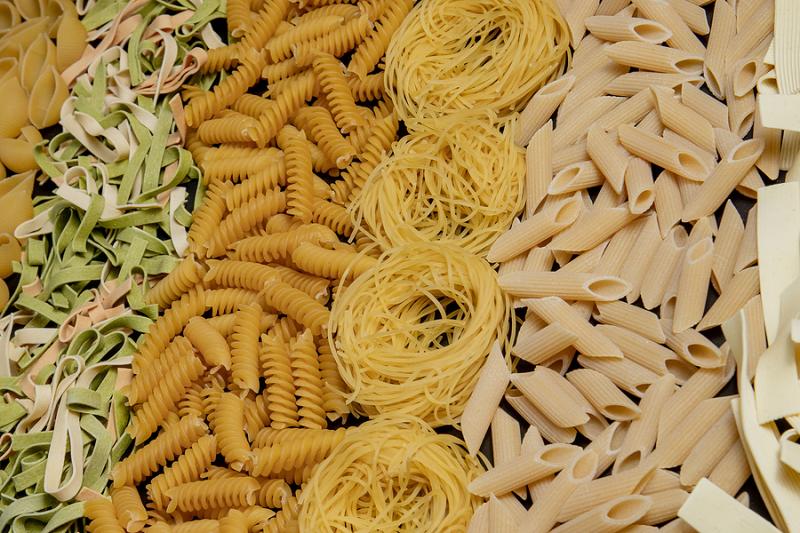Pasta carbs get somehow a bad rep when it comes to maintaining a healthy weight, yet a recent study found not only that energy intake was similar when comparing pasta consumers with non-consumers of pasta (meaning that consuming the carbs contained in pasta does not necessarily mean introducing more calories); the study also found that regular consumption of pasta is associated with a higher intake of nutrients and a better diet quality.
The research, published in August on the Frontiers in Nutrition journal, was conducted by Yanni Papanikolau, researcher at the University of Toronto and vice-president of the research company Nutritional Strategies.
It analyzed the diets of 323 children between 2 and 18 years old and 400 adults (older than 19).
The study found that pasta consumers had increased daily intake of dietary fiber, folate, iron, magnesium, and vitamin E, when compared to non-consumers of pasta.
“Adult pasta consumers had reduced added sugar and saturated fat intake, while no differences were observed for sodium intake vs. non-pasta consumption. Pasta consumption in children was associated with lower saturated fat, with no differences seen in added sugar and sodium intake. Pasta consumption was associated with an improved diet quality relative to non-pasta consumption,” reports the abstract published online.
Daily intakes for potassium, calcium, vitamin A and vitamin D were similar when comparing pasta consumers to non-consumers of pasta, the study also found.
In addition, gender-specific analysis revealed reduced body mass index, waist circumference, and body weight in females aged 19–50 years when compared to no pasta consumption.
Overall, pasta consumption was associated with a better diet quality and improved nutrient intakes.
Eating a daily portion of pasta commensurate to each individual's needs can “have public health benefits,” the study concludes.
Pasta is naturally low in sodium and is cholesterol-free. Whole-grain pasta can provide up to 25% of recommended daily fiber intake. In addition, carbohydrates like pasta provide glucose, the crucial fuel for your brain and muscles, and provide sustained energy.
“Pasta can be an effective building block for good nutrition throughout the lifecycle, as it serves as a perfect delivery system for fruits, vegetables, lean meats, fish and legumes,” said Diane Welland, Director of Nutrition Communications for the National Pasta Association and a registered dietitian. “Think of pasta as a canvas from which you can add almost any nutrient-dense, fiber-rich food you and your family like, to create memorable and delicious meals. This analysis underscores the nutritional importance of grains, such as pasta, as consistent with a healthy diet. It shows that pasta eaters have better quality diets than those who don't eat pasta.”
Now, if you’ll excuse me, it’s lunch time here in Italy, so I’m going to make myself some spaghetti with pesto genovese.
Need ideas for pasta recipes? Visit our dedicated section (select ‘primo’ in the Category menu).











